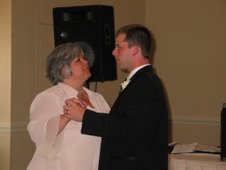After struggling to find meaning in the writings of the Romantics, I have to say that I was more than a little anxious about starting the reading for the Victorian authors. Thankfully, after reading Thomas Carlyle I found myself excited once again about this class.
The background information on Thomas Carlyle was interesting and left me excited to read his pieces. Carlyle writes critically of life in England. He speaks of how "full of wealth" (p. 476) England is, yet many of its citizens go hungry and uncared for. Of the poor he says " . . . glad to be imprisoned and enchanted, that they may not perish starved" (p. 478). Some of Carlyle's wording gets flowery, yet much more than the Romantics he speaks in language that is easily understood. Rather than weave his meaning into words which require the reader to search out his meaning, he states his position clearly. I found the story of The Irish Widow who having pursued every means to feed herself and her 3 children contracted typhus-fever very compelling. The sarcasm is barely beneath the surface when he says "Very curious" (p. 480) in reflecting on how rather than help this poor widow, they refused and from typhus 17 others perished.
In Captains of Industry, Carlyle blasts the leaders for failing to lead in such a way that all could reap the benefits of the industrialization going on in England. I was however a little confused with what I interpreted as a positive references to the feudal barons as better for the surfs than the current state. His likening industrial leaders to Bucaniers and Chactaw Indians who simply take what they want (money and scalps). He feels that the lessons of the French Revolution and the Reign of Terror have not been learned and that revolt of this type is inevitable unless the leaders take heed.
In Know Thy Work, he speaks of the necessity of meaningful work to humans. He says, " . . . in Idleness alone is there perpetual despair" (p. 481). When reading this, I couldn't help be relate this to my own life. Regardless of what else may be going on in my life, if I have work, or school to immerse myself into whatever my difficulty of the moment is, fades away. I can focus on the task(s) at hand and face my difficulty with a more positive approach having "proven" my worth through successful completion of the work.
Carlyle is by far, my favorite author to date. Even though I disagree with some of his positions, I found myself drawn to the simple eloquence with which he made his points. One of my favorite lines was "Government can do much, but it can in nowise do all" (p. 482). Considering his passionate criticism of capitalism I found this statement somewhat contradictory, yet was impressed with his realism. All in all, I suppose his sense of realism is what I found most exciting about his writing. He is writing about real problems in English society and he is offering real suggestions and solutions along with his admonitions and criticisms.
Monday, June 4, 2007
Subscribe to:
Post Comments (Atom)

1 comment:
Wanda,
Excellent discussion of Carlyle! I can tell you have recaptured your excitement for the material, and it makes for even better and more insightful blogging. Good focus on and discussion of his writings and ideas.
Carlyle is one of my favorites, too (and just because my middle name is Carlyle).
Post a Comment